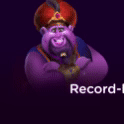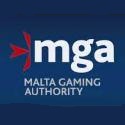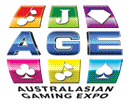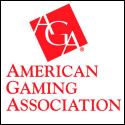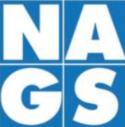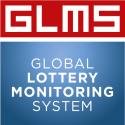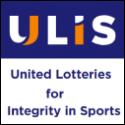Joint Gaming Authority of the Federal States (GGL) is Launched
The joint gaming authority of the federal states (GGL) takes over all regulatory tasks previously performed by individual federal states in a uniform state procedure
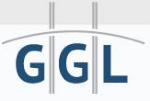 Halle (Saale), Germany (January 11, 2023) — After 1.5 years of development work, the newly created authority has been responsible for the supervision and approval of online gambling offers on behalf of all 16 countries since January 1, 2023 and for combating illegal gambling since July 1, 2022.
Halle (Saale), Germany (January 11, 2023) — After 1.5 years of development work, the newly created authority has been responsible for the supervision and approval of online gambling offers on behalf of all 16 countries since January 1, 2023 and for combating illegal gambling since July 1, 2022.
At the press conference on January 10th to mark the start of the authority, the board of directors explained that all the prerequisites and structures had been put in place to bundle the necessary competencies and resources from one source across borders. Ronald Benter, CEO of GGL, said: ” We are well prepared and able to work. With the GGL, Germany will for the first time have a central supervisory and enforcement authority for gambling on the Internet .”
Ronald Benter explained where GGL stands on the Internet in the development of a legal online gambling market, in particular for the new offers that have been permitted since 2021, such as virtual slot machines, online poker and sports and horse betting. The licensing procedures have been largely completed by the federal states [1] that are temporarily responsible for this, so that the basic prerequisite for channeling the natural gambling instinct to permitted gambling has been created and the GGL can now essentially concentrate on its supervisory tasks.
In the field of virtual slot machines and online poker, almost all of the 78 applications received have been approved. However, only 25 providers for these two types of gambling are listed on the official whitelist, since the payments of the security deposits are still outstanding for a number of applicants who have been approved.
There is still a long way to go in the area of individual gaming licenses for virtual slot machines and online poker. By the end of 2022, almost 600 of the almost 3,500 individual game permits applied for had been checked and approved. “We have to conclude that 100% of the gaming permits submitted are not allowable,” said Ronald Benter. “Often it fails due to the simplest of requirements, for example, if only English-language game instructions are available. Here we expect better coordination between the providers and studios.”
In the area of sports and horse betting, most of the applications received have also been approved, but individual bets still have to be checked by the GGL. Benter: ” Our goal for 2023 in this area is to complete all licensing procedures, including gaming and betting testing, and thus create an attractive legal gaming market.”
A look back at 6 months of fighting illegal gambling
Benjamin Schwanke sums it up: “ The federal states had hoped for more pressure and more success in combating the illegal gambling market with the establishment of the GGL and the bundling of resources. These effects are actually already being seen.”
Since taking over responsibility for combating illegal gambling on July 1, 2022, almost 150 cases of illegal gambling and almost as many cases of advertising illegal gambling have been filed. In the course of this, around 1150 illegal gambling websites were checked.
Numerous unauthorized offers and advertising for them were removed after GGL contacted them. The GGL has already started more than 60 prohibition proceedings and filed more than 30 criminal charges. A large part of it was taken over by the GGL from the Saxony-Anhalt state administration office on July 1, 2022 and processed further.
In addition to the classic enforcement instruments, GGL is also using payment-blocking and network-blocking instruments for the first time. Schwanke said: “We attach great importance to transparent communication with the payment service providers and the Internet providers. We are also seeing initial successes. The majority of payment service providers are withdrawing from business with illegal gambling providers. Deposits with illegal gambling providers are becoming increasingly difficult if not impossible.”
The first positive developments can also be seen with the new instrument of network blocking included in the 2021 State Treaty on Gaming. On the basis of the new legal basis, 6 procedures have already been initiated against the largest Internet service providers. (See the GGL press release of October 7, 2022)
The affected websites have not yet been blocked because the GGL’s administrative files are still being reviewed by the courts. In December 2022, however, 2 administrative courts already considered the means of blocking the network to be permissible in summary proceedings. The affected provider must now block access to the illegal offer. “This is a first milestone on the way to the judicial confirmation of the network blocking,” says Benjamin Schwanke . “ The first successes in the area of enforcement and the instruments of payment blocking and network blocking show that we are on the right track with our approach. What is absolutely clear, however, is that there is still a very long way to go.”
Goals for 2023
The focus of the GGL as a supervisory authority is the consistent monitoring of the approved providers for all types of gambling on the Internet that can be licensed. “We will revoke permits if we find serious violations,” said Ronald Benter. “ Because our goal is a level playing field for all providers. We want to ensure that the business model of offering illegal or non-compliant gambling on the Internet is not worthwhile in the long term”. “We will also proceed consistently when it comes to enforcement: Every provider who is not on the whitelist will be picked up, no matter how big it is,” adds Schwanke. In this regard, the GGL supports the goal of setting up a special public prosecutor’s office in Halle (Saale) in order to enable rapid enforcement against illegal gambling providers.
Another important topic for the next year will also be creating transparency for players about which player protection measures have to be observed by the providers, such as the panic button.
The further development of addiction prevention, in particular with regard to the agreement on early detection systems for gambling addiction, as well as market observation and the awarding of research contracts are goals for 2023.
[1] Overview of releasing countries
Lottery
- So-called social lotteries (Rhineland-Palatinate)
- Class lotteries (Free and Hanseatic City of Hamburg)
- Commercial game brokerage (Lower Saxony)
Dangerous types of gambling
- Virtual slot machines (Saxony-Anhalt)
- Online Poker (Saxony-Anhalt)
- Horse betting (Hesse)
- Sports betting (Hesse)
SOURCE: Joint Gaming Authority of the Federal States (GGL).


















